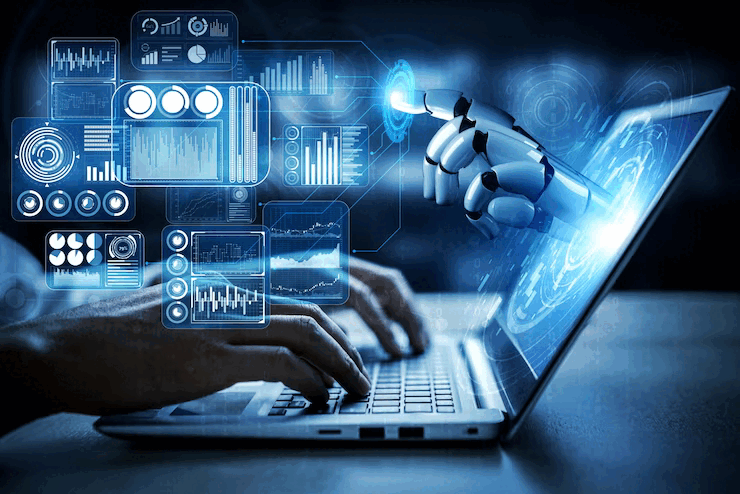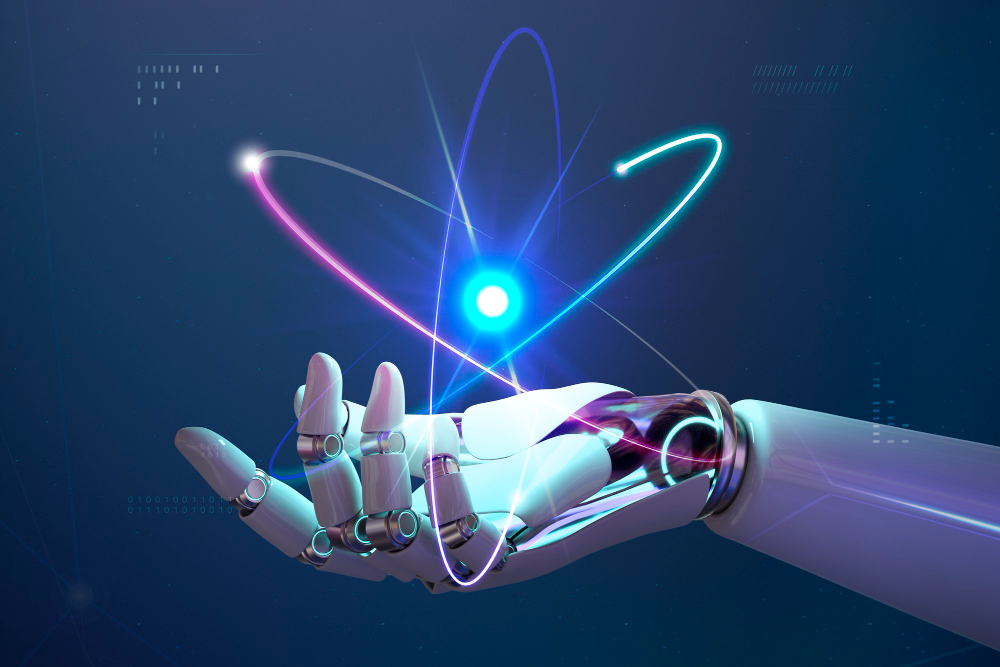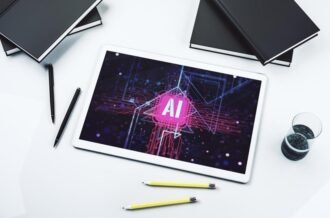Harnessing the Power of AI for Efficient Workflow Automation
- 1 The Power of AI in Business
- 1.1 Data and Network Security
- 1.2 Implementing AI for Workflow Automation
- 1.3 AI and Workflow Automation
- 1.4 A Few Examples of AI in Workflow Automation
- 1.5 Challenges and Limitations
- 1.6 AI in Manufacturing and Supply Chain Management
- 1.7 Integration with Existing Technologies
- 1.8 Bridging the AI Skills Gap
Artificial intelligence (AI) transforms businesses’ operations, automating repetitive tasks and streamlining processes. In this blog post, we will explore the benefits of using AI for workflow automation, implementation strategies and how it can lead to more efficient and productive workplaces.
The Power of AI in Business
AI technology has advanced dramatically in recent years, making it more accessible and applicable to various industries. AI in business can bring about countless benefits, including enhanced efficiency and productivity, cost savings through reduced labour and resource consumption, increased accuracy, decreased human error, faster and more informed decision-making, and improved customer experience and satisfaction.
Data and Network Security
As businesses integrate AI technologies into their operations, ensuring the security and privacy of sensitive data becomes crucial. Investing in a reliable Network Security Service for Small Businesses can help safeguard company data while maintaining regulatory compliance. An effective security solution mitigates potential risks and vulnerabilities arising from increased interconnectivity and automation in the workflow.
Implementing AI for Workflow Automation
Successfully harnessing the power of AI for workflow automation requires a strategic approach. The following steps will guide businesses in achieving a seamless AI implementation:
Identify repetitive and time-consuming tasks: Begin by mapping out all of your organization’s processes and searching for repetitive tasks that could benefit from automation.
Choose a suitable AI solution: Research the available AI solutions and select one that best fits your company’s workflow automation needs.
Collaborate with AI experts: Consult with AI experts to ensure the chosen solution will efficiently automate the desired tasks and can be scaled for future growth.
Train your employees: Ensure your team is well-versed in the AI platform by providing the necessary training and resources, enabling them to optimize its use in their daily tasks.
Analyze and optimize: Continually monitor the automated processes and analyze the results to maximise their efficiency and effectiveness for your business.
AI and Workflow Automation
One of the most significant benefits of AI implementation is automating repetitive tasks. Workflow automation using AI technology allows businesses to free up employee time to focus on high-value tasks, automate manual and time-consuming processes, customize workflows based on individual business needs, and monitor and optimize processes in real-time.
A Few Examples of AI in Workflow Automation
Artificial intelligence is making its mark in several industries, automating specific processes and leading to cost savings and efficiency gains:
Finance: AI automates financial data analysis and report generation, streamlining decision-making.
Human Resources: AI streamlines recruitment processes, candidate screenings, and performance management, freeing HR professionals’ time for more strategic tasks.
Customer Service: AI-powered chatbots offer instant and accurate responses to customer inquiries, improving the customer experience and reducing the workload on customer service teams.
Healthcare: AI algorithms can automate routine tasks such as data entry, medical imaging diagnostics, and appointment scheduling, allowing healthcare professionals to focus on patient care.
Challenges and Limitations
While AI has immense potential to revolutionize workflow automation, it does have some challenges and limitations. These challenges include the cost of implementation and maintenance for small businesses, resistance to change within the organization, privacy and security concerns, limited AI accuracy, and the need for ongoing supervision.
AI in Manufacturing and Supply Chain Management
Industries such as manufacturing and supply chain management are also reaping the benefits of AI-driven workflow automation. AI technology can monitor production lines in real time, predict equipment failure, and identify inefficiencies, enabling organizations to respond quickly and implement corrective actions. In supply chain management, AI can optimize route planning, inventory management, and demand forecasting, resulting in considerable cost savings and improved overall efficiency.
Integration with Existing Technologies
AI-driven automation can be further enhanced by integrating it with existing technologies, such as Robotic Process Automation (RPA) and business analytics tools. By seamlessly merging these technologies, organisations can unlock their automation efforts’ full potential. The resulting synergy extends the scope of automation, creating opportunities for substantial time savings, end-to-end process improvements, and decision-making based on real-time data analysis.
Bridging the AI Skills Gap
To fully harness AI’s potential, businesses must address the existing skills gap in the workforce. As AI-driven technologies become more prevalent, the demand for talent with AI expertise will continue to grow. Organizations must invest in training programs to upskill their existing employees while also making concerted efforts to attract new hires with the requisite skills and experience. As more companies embrace the need for a skilled AI workforce, AI implementation’s success will soar.
Harnessing the power of artificial intelligence for workflow automation is transforming businesses and boosting efficiency across various industries. Organizations can implement AI strategically by identifying repetitive tasks, selecting the right AI solution, collaborating with experts, streamlining processes and paving the way for a more productive future.






















